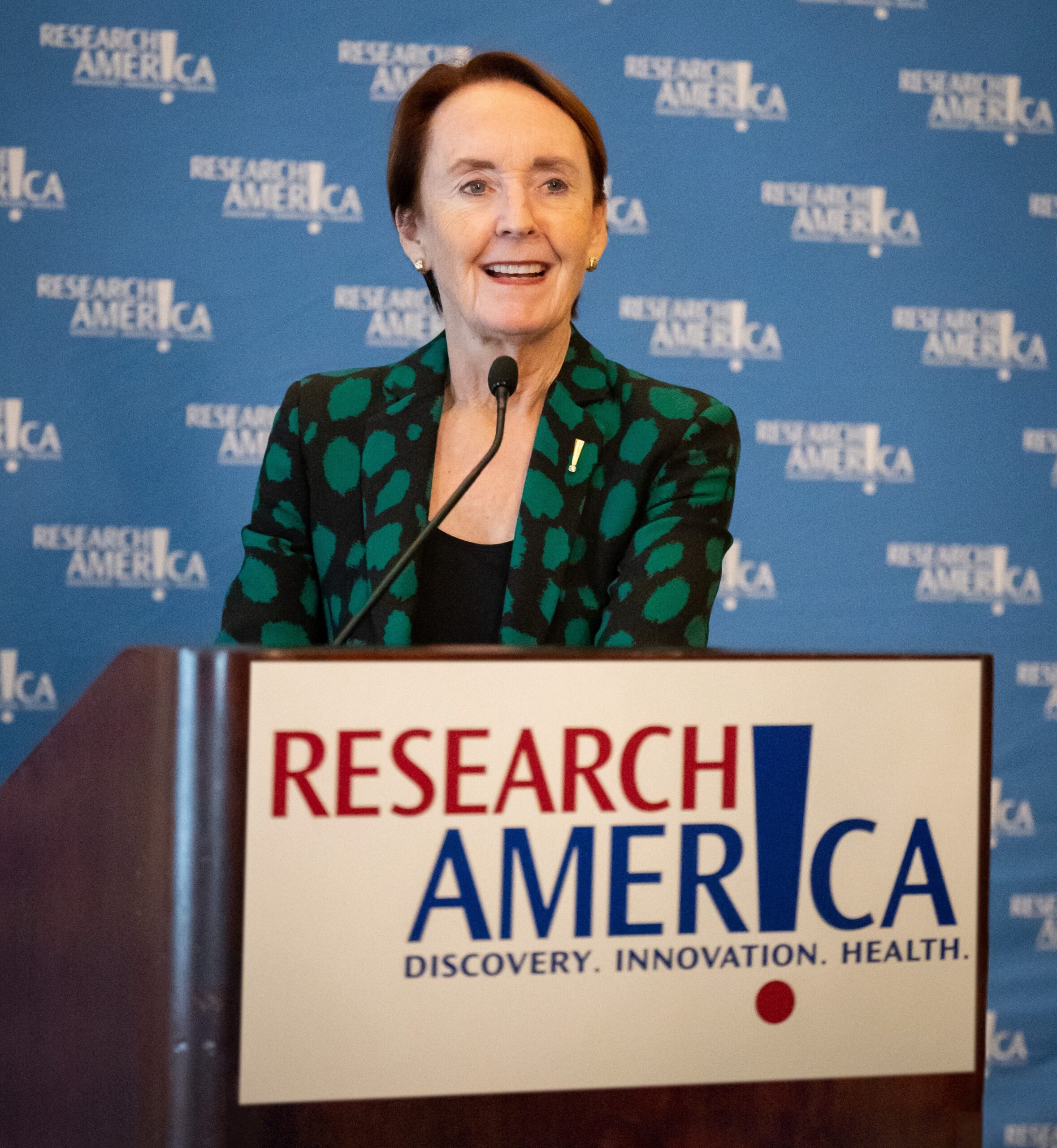Emerging Threats

Recent news reports on the growing incidence of mosquito-borne tropical diseases, including wide coverage of Dr. Anthony Fauci’s bout with West Nile virus (WNV), a New Hampshire resident who died this week after contracting eastern equine encephalitis (EEE), and several cases in Massachusetts, has raised the profile of rare but concerning mosquito-borne diseases. The threat is all too real to those in affected communities and is unlikely to end anytime soon. Linked here is a Research!America alliance discussion on the growing threat posed by tropical and mosquito-borne diseases. As the planet warms and our enjoyment of the outdoors is potentially restricted, research and public health agencies must be better equipped to address threats proactively rather than reactively. Our recent op-ed on dengue fever, a neglected tropical disease, is timely as a call to our elected leaders to ensure the nation is well-prepared to address emerging threats.
On the Hill: Congress will reconvene after Labor Day to face a packed agenda, including the need to fund the government when fiscal year 2025 begins on Oct. 1. That means – you guessed it – they will need to pass a continuing resolution (CR) before Sept. 30 since it’s virtually certain they will not approve FY25 appropriations legislation before that date. A CR, unfortunately now almost routine, constrains federal agencies from responding to urgent priorities in a timely way – which affects many, including many of our most vulnerable citizens. Check out this data-packed look at the history and implications of CRs from the American Association for the Advancement of Science.
Advocacy Implications: The focus of our advocacy this month will not be on preventing a CR in September. There simply isn’t time for Congress to navigate the differences between the House and Senate “Labor-HHS” and other appropriations bills, and that is just the tip of the iceberg. We will, however, be advocating on two key fronts: 1) preventing a government shutdown; and 2) preventing a full-year CR, which would set scientific progress and a myriad of other national strategic priorities back in dramatic ways. Watch this space for advocacy opportunities!
Collaborating to Advance Children’s Health: Just in time for back-to-school, it’s kids first! Join us Wednesday, Sept. 4, at noon ET, for an alliance discussion with Mike Siegel, MD, Executive Director of the Pediatric Dermatology Research Alliance (PeDRA). Dr. Siegel draws on a wealth of experience in both academia and non-profit advocacy in his role at PeDRA, an organization that has more than 600 members who support research on preventing, treating, and curing childhood skin diseases. Register here.
September Alliance Members-only Meetings: If you are with an alliance member organization, we hope you will participate in two important alliance members-only meetings the week of September 9:
- Join us on Monday, Sept. 9, at noon ET for a members-only roundtable with Dr. Susan Monarez, Deputy Director of ARPA-H. We’ve asked Dr. Monarez to update us as the agency establishes new and – as its mission demands – highly ambitious projects. How are current initiatives going? What’s on the horizon? How can more of the R&D community be involved? The session will feature a brief presentation followed by an “Ask Me Anything” segment with pre-submitted questions – we’d value yours!
- Join us on Thursday, Sept. 12, at noon ET for a brainstorming session around the potential funding streams to include in the “Cures 2.1” legislation. The bill’s prospective authors, Reps. Diana DeGette (D-CO) and Larry Bucshon (R-IN) are seeking feedback on what funding streams included in the bill should “look like.” (e.g. should NIH funding be dedicated to certain projects like it was with funding in the 2016 21st Century Cures Act?)
If your organization is a Research!America alliance member, email Jacqueline Lagoy to receive the Zoom registration links. Do join us – your active participation lends so much value to these meetings. If your organization is not an alliance member, use (or share ) this link for more information about membership, or drop us a line here to arrange a quick call.
Off the Hill: With the 2024 elections hurtling toward us, now is definitely the time to engage with congressional candidates to foster champions for research! We encourage you to use Research!America’s candidate engagement toolkit and visit our 2024 elections webpage to ensure your voice is heard and to help shape the future of research and innovation.
United States of Science: Mark your calendars for an event at the New York Academy of Sciences (NYAS) on The State of Science, Monday, Sept. 16 from 6:30 to 8:30 p.m. ET. Panelists will include Nicholas Dirks (NYAS), Dario Gil (IBM, Science and Technology Action Committee [STAC] and National Science Board Chair), Keith Yamamoto (UCSF, Research!America board member and STAC co-chair), and me. The discussion, moderated by Jo Craven McGinty of The Wall Street Journal, will focus on the challenges facing the scientific community, including the need to develop and fund a national S&T vision and plan, a recommendation included in STAC’s State of Science in America report.
The meeting will be held in New York, but you can attend virtually. Use the code 5OFF to receive a discounted $20 fee to register to participate in person.
National Health Research Forum: It’s almost time for Research!America’s 2024 National Health Research Forum, “Straight Talk,” to be held virtually on Sept. 17 and in person at the George Washington University on Sept. 18, and we are excited! Join us for insightful and inspiring discussions with top federal officials, research and industry leaders, patient representatives, and members of the media to address topics including the current political environment, accelerating innovation through clinical trials, the impact of climate on health, artificial intelligence and drug development, nutrition and health, and addressing comorbidities in mental health. It’s free and open to all, but space is limited. Register here for the virtual day, and here for the in-person day. Join us for both!




